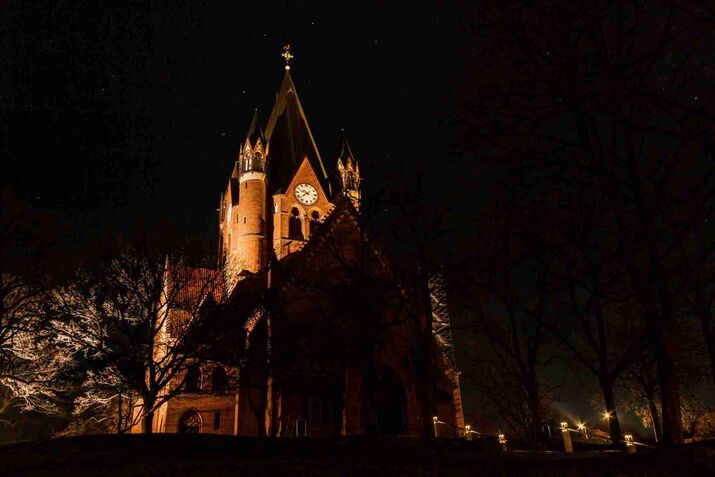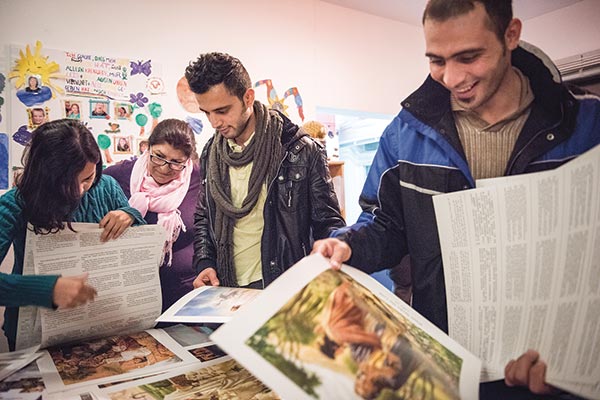Middle East Missions Organizations: How NEO US Brings Faith to the Margins
Learn how NEO US is equipping thousands of ordinary people across the Middle East to share their faith in everyday spaces, transforming communities from Egypt to Syria to Iraq.

Introduction
Christian missions in the Middle East often conjure images of underground churches, refugee camps, or individual stories of courage. But behind many of these stories are organizations working to support, equip, and multiply local leaders. Among them is NEO Leaders, a missions organization that has become a catalyst for grassroots discipleship across the region. Unlike traditional models that rely on professional clergy or Western-led initiatives, NEO focuses on empowering ordinary people to live out their faith in daily life. This long-form feature explores the role of NEO and similar organizations, the impact they are having on the ground, and the lessons they offer for global missions.
The Shifting Landscape of Missions
For decades, Christian missions in the Middle East were often associated with expatriate missionaries, seminaries, and formal institutions. While these models accomplished important work, they also faced limitations. In many cases, foreign workers were viewed with suspicion, church buildings became targets, and formal programs proved unsustainable in conflict zones.
In recent years, however, missions have shifted. Today’s most effective movements are decentralized, reproducible, and led by locals rather than outsiders. Organizations like NEO US play a critical role in this transformation. By focusing on training, mentoring, and resource-sharing, they enable local believers to carry the mission forward in ways that are culturally authentic and sustainable.
The NEO Model: Ordinary People, Extraordinary Impact
NEO US operates on a simple principle: ministry belongs to everyone. Rather than elevating a few professional pastors, the organization trains everyday people to lead. Shopkeepers, teachers, taxi drivers, and even former fighters become disciple-makers in their own communities.
This approach is rooted in the Discovery Bible Study (DBS) method, which emphasizes asking questions, discovering Scripture together, and immediately applying it to life. NEO equips people to facilitate DBS groups wherever they are - in markets, homes, or workplaces. By removing barriers of education and status, the model unleashes a wave of grassroots leaders who multiply groups organically.
The results are staggering: NEO currently supports 225 full-time workers and 7,500 volunteers across the Middle East. These individuals collectively reach tens of thousands of people, often in places where formal churches cannot operate.
Case Studies: Impact on the Ground
The Yazidis: From Horror to Hope
When ISIS stormed through northern Iraq, the Yazidis — a small religious minority — became one of its prime targets. Thousands of women were abducted, bought and sold in makeshift markets and subjected to horrific abuse. Survivors told of being raped repeatedly or forced to watch as their children were murdered before their eyes.
In Yazidi tradition, women who had been raped were considered dishonorable, often killed by their own families in what were called “honor killings.” To prevent this, the community created “survivors’ camps,” isolating women who could never go home. For many, the trauma of captivity was compounded by permanent exile from family.
One Yazidi elder embodied this anguish. He had already lost two sons to ISIS fighters, and all three of his daughters had been enslaved. When the war ended, his daughters were alive but trapped in a survivors’ camp, forbidden by custom to return to their village.
Then, something extraordinary happened. In a dream, the man saw a figure standing before him — Jesus. The figure showed his hands and spoke: “You don’t need to kill your daughters. I paid the price for everyone.” The elder had this vision three times, once for each daughter.
The next day, he stood before the other village elders and announced that he was bringing his daughters home and that no one was to harm them. Within three months, survivors’ camps across the region closed, and Yazidi women were welcomed back into their families.
Today, some of those same women are leading Bible studies and sharing testimonies of healing. Out of unimaginable horror, they speak of a new hope — of a God who restores dignity where shame once ruled.
A Yemeni Leader’s Defiance
In Yemen, Christian witness comes at the highest cost. One leader, deeply embedded in his community, was kidnapped by armed groups. For 15 days, he endured interrogation, beatings, and pressure to reveal the names of others in his network. He refused. When he was finally released, his international partners urged him to leave the country for treatment and safety. But he declined. “I can’t leave,” he said. “My team needs me. The network depends on me.”
In a country devastated by famine, bombardment, and factional violence, his choice to remain is a testament to the resilience of Middle Eastern Christians. For him, faith was not an abstract belief but a calling worth risking everything for. His story is echoed by many others who choose to stay in dangerous places because they believe God’s mission is bigger than their safety.
Theological Shift: Beyond Gatekeeping
One of NEO’s distinctive contributions is its challenge to traditional theological gatekeeping. In many parts of the Middle East, Christianity has been controlled by hierarchical systems where clergy act as gatekeepers of doctrine and sacraments. NEO’s model flips this script. By focusing on discovery rather than instruction, it empowers believers to encounter God directly in Scripture.
This does not mean theology is dismissed. Instead, it is democratized. Believers are encouraged to wrestle with the text, ask questions, and apply it in their contexts. As a result, faith becomes personal, practical, and reproducible. For missions, this is revolutionary: it removes dependency on formal institutions and unleashes exponential growth.
NEO’s U.S. Connection
While NEO is deeply embedded in the Middle East, its U.S. counterpart, NEO US, plays a vital role in connecting Western churches with the movement. NEO US mobilizes resources, raises awareness, and provides training materials that can be used both overseas and in the American context.
Interestingly, NEO’s model resonates strongly in the U.S., where many Christians are rethinking church in a post-pandemic world. The emphasis on small groups, everyday discipleship, and marketplace ministry offers a fresh vision for American churches wrestling with a decline in attendance and relevance. In this sense, NEO is not only exporting missions but also reimporting valuable lessons for the Western church.
Lessons Learned From the Field
NEO’s work highlights several principles with global relevance:
- Multiplication Over Addition: By training every believer to lead, growth happens exponentially rather than linearly.
- Contextualization Matters: Ministries are shaped by local culture, whether that means caring for the disabled in Egypt or discipling through sports in Bulgaria.
- Holistic Care: Addressing both physical and spiritual needs creates credibility and fosters community transformation.
- Humility and Availability: Leadership is defined not by status but by willingness to be used by God.
Challenges and Critiques
Of course, NEO and similar organizations face challenges. In contexts where conversion from Islam is dangerous, secrecy can breed suspicion. Some critics worry that decentralized models risk theological drift without oversight. Others raise concerns about sustainability, especially in countries with economic collapse.
Yet proponents argue that these very challenges make grassroots, decentralized models necessary. In environments where traditional structures cannot survive, flexibility and adaptability are strengths rather than weaknesses.
Conclusion
Organizations like NEO US are redefining missions in the Middle East. By equipping ordinary people, focusing on discovery rather than dogma, and serving the marginalized, they are planting seeds of faith in some of the hardest soil. From Cairo’s hidden disabled to Syria’s former fighters, from Iraqi villages rebuilt after ISIS to Bulgarian gyms, their impact is profound and far-reaching.
For the global church, NEO’s story is both an encouragement and a challenge. It demonstrates that Christianity does not need platforms, celebrities, or institutions to thrive. What it needs are ordinary people willing to make themselves available to God and to others. In a fractured world, that kind of humility and courage may be the most powerful witness of all.

.webp)

